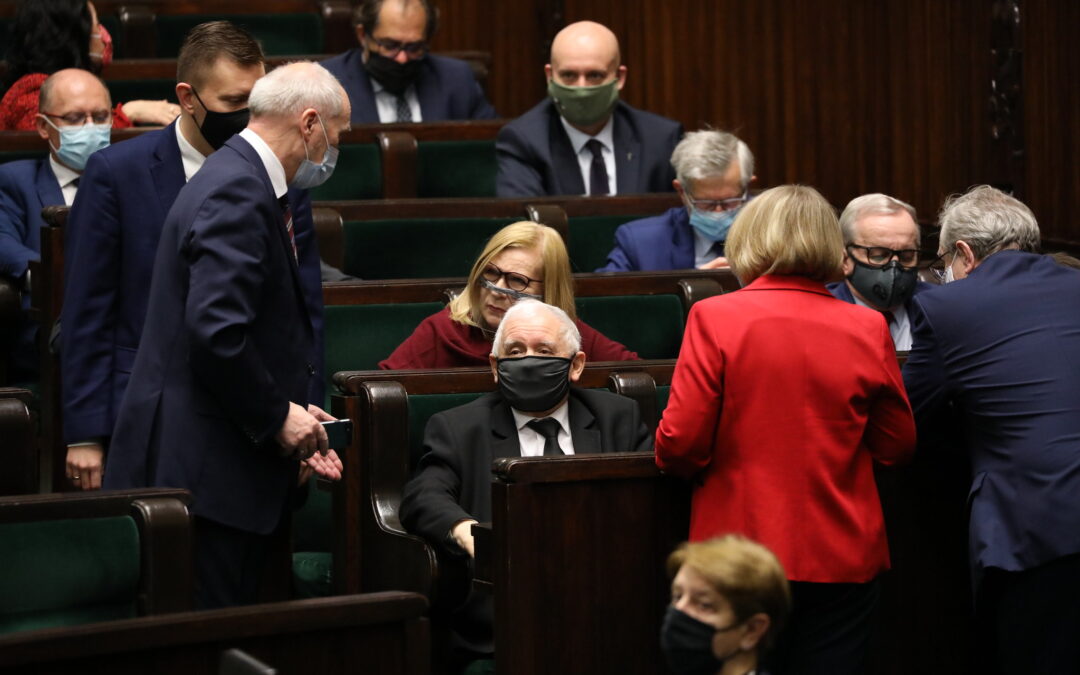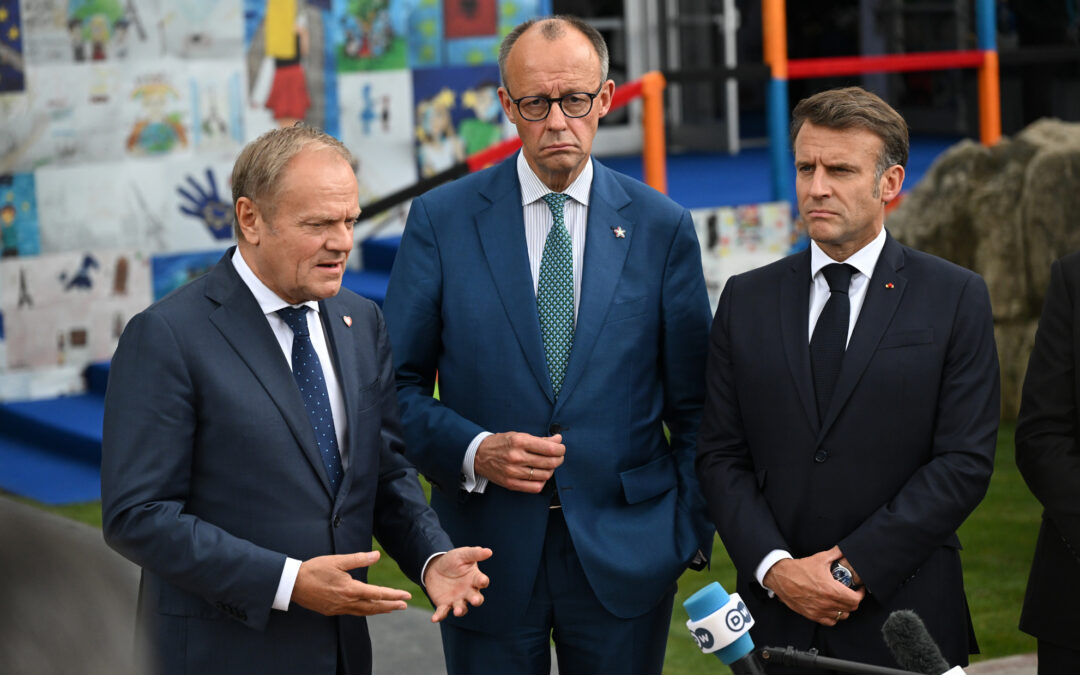Poland now technically has a minority government, after three MPs today quit the governing coalition, leaving it with less than half of seats in parliament. Though the government should still be able to muster a majority for many votes, the situation adds to recent political instability.
This afternoon, Zbigniew Girzyński, Małgorzata Janowska and Arkadiusz Czartoryski announced that they were leaving the caucus of the ruling national-conservative Law and Justice (PiS) party, confirming media rumours that had appeared in the morning.
The three departing MPs said that they were quitting in protest at the government’s energy policies. Though traditionally coal-friendly, PiS has started to push Poland away from its reliance on the fossil fuel and towards renewables and nuclear.
“PiS went to the elections with slogans of ‘Polish black gold’ and was going to base our energy sector on conventional sources,” said Janowska, noting that she comes from Bełchatów, which is home to Poland’s largest power plant and a coal mine that supplies it.
“Our energy security depends on conventional sources, [but] now the government is moving away from [them],” she added, in quotes carried by Polsat News.
“I cannot accept the fact that millions, if not billions of zloty were invested in the construction of the Ostrołęka power plant, and then this investment was torn down in front of my voters,” said Czartoryski, referring to a recently abandoned project to build a coal-fired power station.
“It was [meant to be] the cleanest coal-fired power plant in Poland, so I am not convinced by the arguments to suspend this construction,” continued Czartoryski, who was born in Ostrołęka.
Both Czartoryski and Girzyński also criticised the government’s new economic programme, the “Polish Deal”, which they say would be harmful to small businesses. They and Janowska will now form their own caucus in parliament together.
Their departure leaves PiS with 229 MPs in the 460-seat Sejm, the lower house of parliament. That is two short of a majority, and down from the 235 it won at the 2019 elections, when it stood on a joint list with junior coalition partners Agreement (Porozumienie) and United Poland (Solidarna Polska).
For the time being, however, it is likely that the government can continue to function. There are already smaller groups and individual MPs who, though not formally part of the coalition, regularly vote with PiS. The ruling party recently formalised such an arrangement with the Kukiz’15 party, which has four MPs.
Girzyński, Janowska and Czartoryski also indicated that they would continue to cooperate with the government on some issues. “We certainly will not be a total opposition force,” said Girzyński, quoted by Wirtualna Polska. “We will be looking at all bills substantively and without prejudice towards any parties.”
“We [still] have a stable majority, although it is not formally visible,” said PiS spokeswoman Anita Czerwińska, quoted by Wirtualna Polska. “What matters is how MPs vote.”
“I do not think that [the departures] cause any serious problems,” said the prime minister, Mateusz Morawiecki, quoted by RMF24. “I hope that all those who, as a result of various problems and animosities, find themselves in different caucuses can be persuaded to further cooperate.”
Rzeczniczka PiS w wybitnie niekonkretnej wypowiedzi mówi o niezałatwionych sprawach posłów Girzyńskiego i Czartoryskiego. pic.twitter.com/BD7j9vck7c
— Patryk Michalski (@patrykmichalski) June 25, 2021
The loss is, however, symbolic for PiS, which in 2015 became the first party in Poland’s post-communist history to win a parliamentary majority on a single electoral list. It repeated that feat in 2019.
It also adds to growing instability within the ruling camp, which has seen repeated rebellions from the two junior coalition partners, preventing the PiS from passing key legislation.
Last year, Agreement refused to support PiS’s plans to hold presidential elections by post amid the pandemic. Its leader, Jarosław Gowin, quit the government in protest over the issue (though he rejoined later in the year).
United Poland and its leader, justice minister Zbigniew Ziobro, have repeatedly pushed for the government to take a more eurosceptic line. Earlier this year, its MPs refused to vote in favour of ratifying the EU’s coronavirus recovery fund, leaving the government to rely on opposition support.
Ziobro is seen as a bitter rival of Morawiecki, whom he recently accused of accepting “the diktat of Brussels and Berlin”. Last month, the justice minister said that his party would “continue to support this government, because there is no better [alternative] one”.
Gowin has indicated that, if differences within the ruling coalition cannot be ironed out, early elections may be necessary. He has also himself faced a rebellion within his own party (reportedly with PiS support).
“[PiS chairman] Jarosław Kaczyński is having to buy his [parliamentary] majority at an increasing price,” Szymon Hołownia, leader of the opposition Poland 2050 (Polska 2050) party, told TVN24 yesterday.
Gowin “is mentally already outside the [ruling coalition], just waiting for the right moment to press the nuclear button”, claimed Hołownia. Rumours have regularly suggested that Agreement – the most centrist of the ruling parties – could seek to form a new administration with opposition parties.
Main image credit: Kancelaria Sejmu/Rafał Zambrzycki (under CC BY 2.0)

Daniel Tilles is editor-in-chief of Notes from Poland. He has written on Polish affairs for a wide range of publications, including Foreign Policy, POLITICO Europe, EUobserver and Dziennik Gazeta Prawna.




















